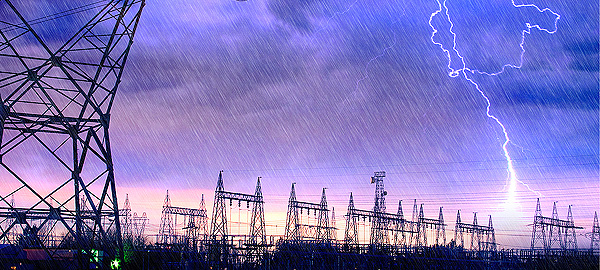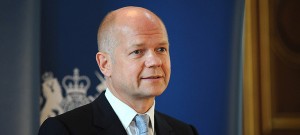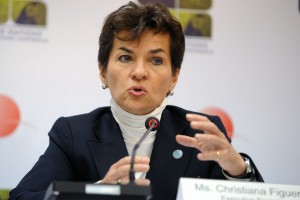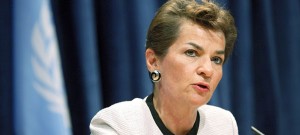Ed King
Ed previously worked as a Producer on BBC Radio 5 Live. He holds an MA in International Studies and Diplomacy from the London School of Oriental and African Studies, specialising in global energy and climate policy.EU climate chief casts doubt on Kyoto Mk II
Connie Hedegaard says bloc will only commit to a second commitment period of the Kyoto Protocol if all major emitters are involved in a ‘broader framework’.
Energy efficiency sector weathering global economic climate
Investment opportunities in energy efficiency remain strong despite the current financial crisis, and could offer attractive returns over the coming decade, say sector experts.
Analysis: The private sector and climate change
In the first of three articles for RTCC, Kentaro Ide explores the role the private sector can play in combating climate change.
$35 billion per year needed to provide clean energy in Africa
Africa needs $35 billion investment per year in order to provide clean energy across the continent, according to a report by UK charity Christian Aid.
Obama administration extends offshore drilling
US decision to extend range of available offshore drilling in Arctic and Gulf of Mexico raises questions over Obama climate change credentials.
India’s fight against climate change starts at home
The headlines will be made at COP17, but Susannah Fisher from the LSE’s Grantham Research Institute argues that if you dig below the surface, a real move to a low carbon economy is already underway in India.
Hague: Economic crisis provides opportunity to confront climate change
British Foreign Secretary William Hague says the current world downturn cannot be an excuse for politicians ignoring the dangers of climate change.
RTCC Q&A: Kyoto Protocol
RTCC provides the answers to all the questions you may have about the Kyoto Protocol – the most famous piece of climate legislation in the world.
Karachi kid wins $5000 climate change film award
Pakistani graduate Danish Khan wins the inaugural Climate Change TV award, picking up a prize of $5000.
COP17 Blog: High hopes, low expectations
In the first of RTCC’s series of blogs from negotiatiors and activists heading to COP17 in Durban, Luke Hughes, campaigns officer on the UK Youth delegation, spells out his hopes and fears for the conference.
UNDP warn climate change could reverse global prosperity by 2050
The economic progress of the world’s developing countries could stall or even reverse by 2050 if swift and drastic measures are not taken to combat the effects of climate change.
Exclusive: Figueres ‘hopeful’ over COP17 climate talks
The head of the United Nations Framework Convention on Climate Change tells RTCC that she is hopeful real progress can me made at COP17 in Durban.
Praise for UK government from UNFCCC chief Figueres
Head of UNFCCC Christiana Figueres tells RTCC that the British government is leading the way with policies to fight dangerous climate change










